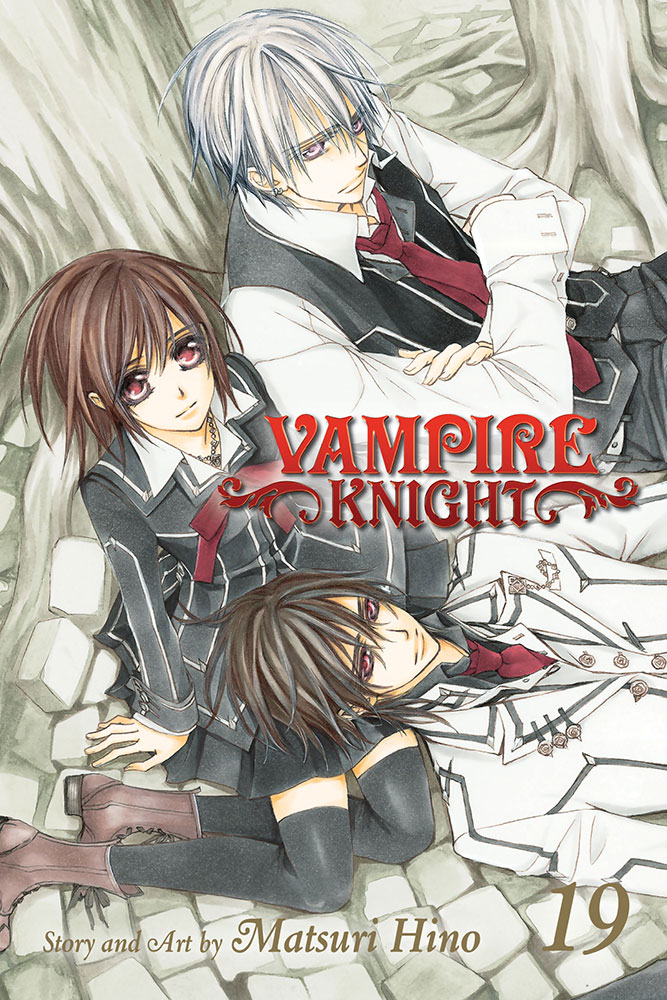By Matsuri Hino. Released in Japan by Hakusensha, serialized in the magazine LaLa. Released in North America by Viz.
And so after 19 volumes, we come to the end of this particular journey. Yes, there’s a novel due out next month, but for the main manga, this is it. There’s even a limited edition, which has (in my opinion) a better cover art picture and a limited edition hardcover artbook, which features some lovely character pieces. Vampire Knight has always been a series that I’ve found to be of the moment. I may forget what’s actually going on the moment I put down the book, but while I’m reading the book, I’m swept along by the drama and emotions going on within. This last volume takes that and amps it up even further, as Yuki and Kaname compete to see who can out-self-sacrifice each other.
This is not to say there aren’t some issues. The incestuous subtext that’s been bubbling under the entire series becomes text early in this volume, and while it’s not dwelled on, I can’t say I was all that happy with it. Most of the supporting players who had large roles earlier in the series are reduced to little more than cameos here, though again it was excellent to see Yuki’s human best friend, Sayori, pop up to remind us that the world isn’t entirely vampires. (Nice flashforward as well.) And of course the entirely of this volume seems to feature both Kaname and Zero trying their best to protect Yuki by removing any agency she might have to strike off on her own, which usually makes me growl, but…
Yuki isn’t having any of it. The series has balanced a knife edge as to whether Yuki will finally slip and become a princess who needs to be protected and rescued or a knight who does the rescuing, and it’s to Hino’s credit that the final decision is Yuki’s, and it’s to live up to the title. Possibly the best panel in the entire volume shows Yuki, in her school uniform and sword in hand, dragging Aido (who is literally flapping in the wind” while shouting “We’ve got an academy to protect!” It does a heart good to see this.
As for Kaname’s master plan, well, in the end there’s not much they can do about it, but they do manage to find a sort of deus ex machina that can be fired off after a thousand years. The epilogue shows that all of the hatred and political intrigue that has dominated vampire life (and the series in general) seems to have dissipated. And Yuki and Zero are together, though this is given really short shrift – in the end, it’s not about whether Yuki ends up with her brother or her classmate, it’s about Yuki working with others to save both vampires and humans. Romance is an afterthought.
Vampire Knight’s pleasures may be fleeting, but that doesn’t make them any less enjoyable. A lot of Vampire Knight’s covers have featured the main characters looking out at the reader, and the limited edition one does the same, with Yuki, Zero and Kaname lying exhausted yet satisfied (yes, yes, OT3), and saying to the reader, “We’re done. Is this enough?” It’s a very good conclusion.

